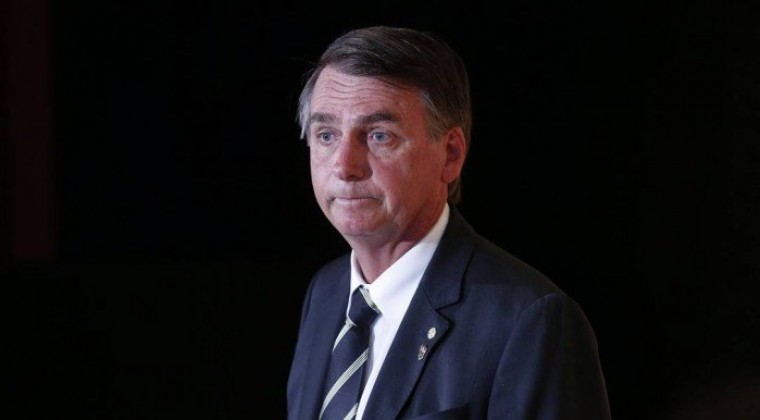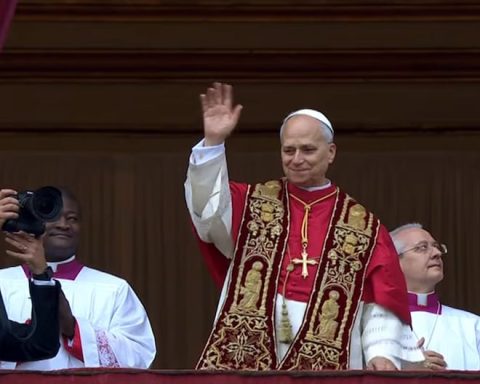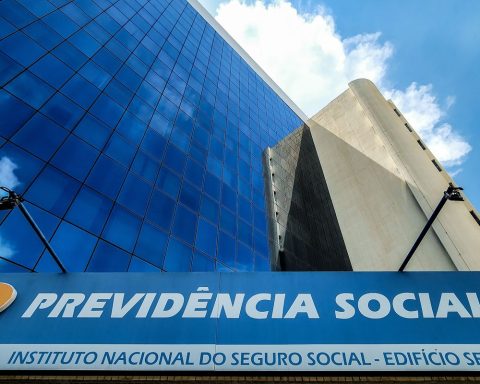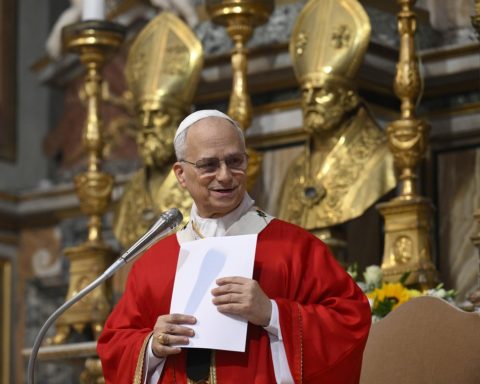NATO and Poland (part of that organization) said the explosion, in a Polish town near the Ukrainian border, was likely caused by a Ukrainian air defense missile fired to counter Russian attacks. Moscow denied that it was involved.
The missile killed two men in the small town of Przewodow, six kilometers from Ukraine, on Tuesday after hitting an agricultural facility, leaving the country in shock. Poland put its army on standby.
The event raised fears that the North Atlantic Treaty Organization (NATO) would be directly involved in the conflict.
“The incident was probably caused by a missile from the Ukrainian air defense system to defend the country from Russian missiles,” said the secretary general of the military alliance, Jens Stoltenberg, after an emergency meeting of NATO ambassadors.
For his part, Polish President Andrzej Duda stated that “there are no indications that it is an intentional attack against Poland” and reiterated that it is “very likely” that the missile was Ukrainian.
It may interest you: Donald Trump is launched in the race for the White House
“IMMEDIATE ACCESS”
Ukraine, which initially accused Russia of the shooting, called for “immediate access” to the site of the impact.
“We are ready to hand over the proof of the Russian trail that we have,” said the secretary of the Ukrainian National Security and Defense Council, Oleksiy Danilov.
From Bali (Indonesia), where the G20 leaders were meeting, US President Joe Biden had also said earlier that it was “unlikely” that the missile came from Russia.
US Defense Secretary Lloyd Austin however insisted that Russia was ultimately responsible for the incident.
Still, Moscow welcomed Washington’s “restrained reaction.”
“The wreckage (…) was categorically identified by Russian specialists (…) as an element of an anti-aircraft guided missile of the S-300 anti-aircraft defense systems of the Ukrainian armed forces,” the Russian Defense Ministry said in a statement.
Also read: Musk gives Twitter employees an ultimatum: either you agree to work hard or you leave
“The high-precision strikes were carried out in Ukraine at a distance of more than 35 km from the Polish-Ukrainian border,” it added.
In the town of Przewodow, the residents were shocked.
“I’m scared. I didn’t sleep all night,” said Anna Magus, a 60-year-old teacher at the village primary school. “I hope it was a stray missile, because if it’s not the case, we’re defenseless,” she added.
Poland held an emergency meeting of its National Security Council on Tuesday and summoned Moscow’s ambassador to give “immediate detailed explanations.”
In response, Moscow summoned the Polish ambassador on Wednesday.
“AVOID ESCALATION”
Western leaders urged against jumping to conclusions. China called for “calm and restraint” and the head of the German government, Olaf Scholz, warned of the danger of drawing “hasty” conclusions.
It is “absolutely essential to avoid the escalation of the war in Ukraine,” said the Secretary General of the United Nations, António Guterres, who called for an “in-depth investigation.”
Ukrainian President Volodimir Zelensky, in a message to the G20 leaders, initially assured that the attack on Poland “is nothing more than a message from Russia to the G20 summit.”
His foreign minister, Dmitro Kuleba, had dismissed as a “conspiracy theory” the idea that it could have been a Ukrainian missile.
Russia invaded Ukraine on February 24 and continues to occupy parts of its territory despite a series of defeats in recent months.
More news: The world population reaches 8,000 million people
Poland, which shares a 530-kilometre border with Ukraine, has assumed regional leadership by providing military and humanitarian aid to its eastern neighbor and sanctioning Russia.
The conflict causes deep unrest in Poland, where the memory of Soviet rule is still vivid.
Poland is protected by NATO’s collective defense commitment, enshrined in Article 5 of its founding treaty, but the alliance’s response depends on the conclusions of the origin of the incident.
The explosion came after a massive Russian missile attack on Tuesday against cities across Ukraine, including Lviv near the border with Poland.
Zelensky said the attacks cut power to some 10 million people, though it was later restored to 8 million, and also caused automatic shutdowns at two nuclear power plants.
The coming week will be “difficult” for the inhabitants of the kyiv region, the regional governor, Oleksiy Kuleba, warned on Wednesday.

















